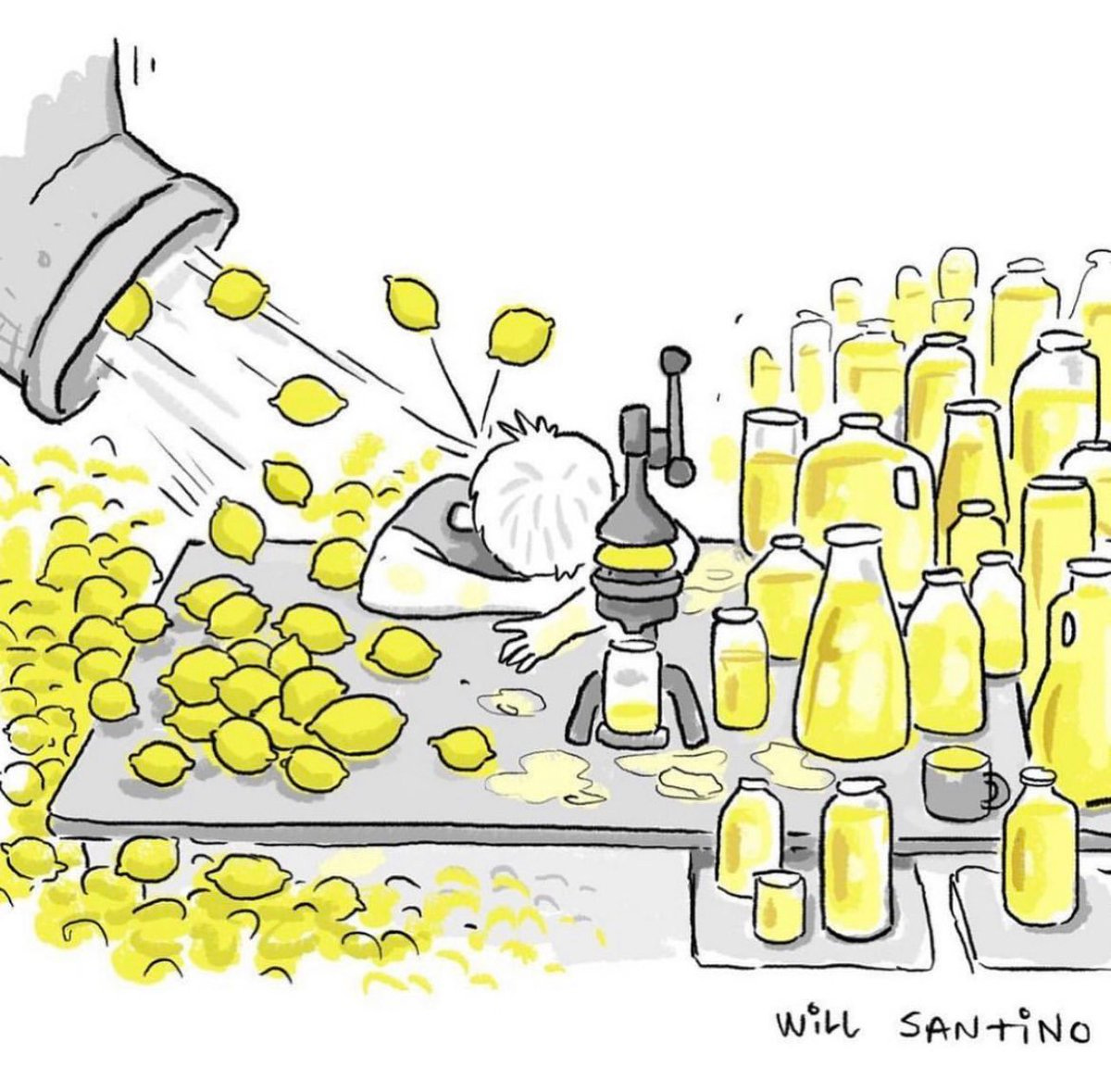Access: Secondaries... What's The Big Deal?
"The idea is, you can create a greatest hits album" - Tony Colarusso
Hello reader,
This is the 15th edition of Access - last week’s most clicked link was this piece from Triple Pundit covering the ESG trends for 2023.
Building on last week’s outlook for the year ahead, we’ve decided to dedicate this issue’s In Depth section to the topic of private capital secondaries. Here are a few headlines we’ve seen recently -
“Secondaries market set to boom in 2023”
“PE secondaries will reach new heights”
“Investors are using the secondary market to fix their PE portfolios”
So we thought we’d take a deep dive into the subject… have a read, and let us know your questions.
Until next time -
Liz & Melissa
In case you missed it…
Our first email edition of 2023 included private markets trends & predictions, including:
FEATURING:
In Brief: Insights from the world of private markets
Carlyle (finally) names a new Chief Exec
People news, moves and promotions
Team time: Coller hosts Little Moon’s co-founder
In Depth: Private Capital Secondaries… What’s the Big Deal?
IN BRIEF
Carlyle Names Ex-Goldman Sachs Exec Harvey Schwartz as CEO
After an extended search, Carlyle confirmed that Schwartz will starts as CEO on February 15th. He replaces Kewsong Lee, who left last summer after a reported fall out with Carlyle founders.
“Now that Harvey is here, it has also taken away some uncertainty about our path forward for the firm, and we think that will also have a positive impact on fundraising,”
- William Conway, Carlyle co-founder
Carlyle’s fundraising had slowed amid challenging market conditions, although there’s been some speculation that investors were put off by the absence of a chief exec.
But what do Schwartz’s ex-Goldman’s colleagues say?
“Street fighter”, and
“He is a demanding boss who expects high performance and real commitment to the job”.
Quite the reference…
***
Pssst…! Carlyle’s head of impact, Megan Starr, who we covered in Access 012 (👇) is hiring an ESG lead for their global credit platform.
***
People Moves & Promotions Across Our Private Markets Network
Amid continued demand for NAV finance, 17Capital made a flurry of promotions including Nadya Feteha promoted to operations manager, Becky Wang as fund operations manager, and Simon Bowley to the role of technology director.
Congratulations to Kathryn Bintcliffe who joins Triton Partners as ESG professional… also to Mark Cornelis who has started a new role as Investor Relations Director at Ardian… Allvue Systems welcomed Clay Sturtz and Benjamin Van Zoest as Account Executives… Lucy Wilson starts a new marketing role with BGF… and CVC Capital Partners appointed Luiz Delgado as Managing Director
***
Spotted on LinkedIn…
“At Coller Capital, we are connecting our circle of women to come together outside the office so that we can listen, be inspired, and take time just to be together.”
The team welcomed Vivien Wong, co-founder of Little Moons frozen mochi balls.
“In discussion with Coller Partner Katrina Liao, and DEI co-ordinator Charlie Burness, she described her journey from accountancy to investment banking, before co-founding her business.
Vivian spoke of the importance of having good examples of professional women in her life, going viral on TikTok and being an 'overnight success' after eight years... She never stops learning, and encouraged the audience to seek out mentors for support and guidance with their careers.”
🙌
IN DEPTH
“Lots of institutions said: ‘Why would we want to buy other people’s rubbish?’ We were seen as a leech on a leech’s back.” - Jeremy Coller
Last month, Blackstone announced a record $25bn close, making their Strategic Partners IX the world’s largest dedicated secondaries fund raised to-date. Their latest global secondaries strategy also includes a $2.7bn GP-led continuation fund - more on this in a moment.
Originally conceived as a way to create liquidity in an otherwise illiquid market, secondaries have grown in both size and complexity. Today, investors might use the secondaries market to rebalance their portfolio, or respond to regulatory changes. And fund managers have gotten in on the act too, with GP-led transactions now forming a significant part of the overall secondary market.
The view from LPs
According to research released this week by State Street, nearly 70% of institutional investors who participated in the study plan to allocate more to private capital over the next few years. Whilst this may be true, 42% of LPs who participated in Coller Capital’s latest Global Private Equity Barometer say the denominator effect - where falling stock prices leave investors overexposed to private assets - is likely to slow the pace of their PE commitments. Just over half of the surveyed LPs plan to access the secondary market in the next two years, with a marked increase in those planning to sell assets.
Of course, whilst some LPs might be overallocated to private markets, others may use the secondaries market to create flexibility within their portfolio, freeing up capital to make new private fund investments. And it’s not just LPs driving the increase in secondary transactions, GP-led secondaries have evolved into a distinct subset of their own.
“Private equity investors do not see it all the same way. Some want cash. Some want to hold assets they believe have potential. Some are fine either way. Single asset secondaries provide choices for LPs, who generally can choose to sell or hold.”
- Nash Waterman, Head of Private Markets Secondaries at Morgan Stanley Investment Management on the evolution of GP-led secondaries
Both sides of the deal
Hot on the heels of Blackstone’s inaugural continuation fund, last week saw Morgan Stanley close on a $2.5bn secondaries fund dedicated to single-asset GP-led continuation vehicles. As a subset of GP-led secondaries, continuation funds involve the GP shifting assets into a special purpose vehicle, effectively acting as both buyer and seller. The original group of LPs can either cash out, or roll their stake into the new fund, whilst the GP secures more time (and capital) to create value in their portfolio.
“In a post-pandemic world of increased competition and historic levels of dry powder, private advisers are increasingly using continuation funds to keep hold of trophy assets.”
Aztec Group’s article outlining the rise of continuation funds explains how industry perceptions have changed in recent years, although it acknowledges the potential for conflict of interest. As the number and value of these GP-led secondary transactions has increased significantly over the past few years, so too have concerns about valuation transparency, asset quality, and deal governance. Whilst continuation funds are a complex issue, it looks like they’re here to stay.
What’s next for secondaries?
The sector seems set to carry on growing, particularly if the generally challenging conditions in the broader financial markets continue. In Unigestion’s piece titled The Upside of a Downturn, they note the link between declining valuations and a potential increase in attractive secondary buying opportunities, also predicting sustained interest in both single- and multi-asset continuation deals.
Private debt secondaries are also on the rise, says Pitchbook, with Coller Capital and Pantheon both closing dedicated credit secondaries funds in the past year.
Despite widespread uncertainty about the year ahead, it seems clear that secondaries are evolving and both LPs and GPs are looking to this part of the market for potential opportunities.
***
And finally… No more lemons please🍋
A friend sent me this cartoon by Will Santino today. It seemed oddly fitting, given the topic of this newsletter, so I thought I’d share. Hope your day’s been better than hers, but if not, perhaps this will make you smile.
Thanks for reading. If you don't want to miss our next newsletter, please add Access to your contact list. (Or move this email from "promotions" to your primary inbox.)








